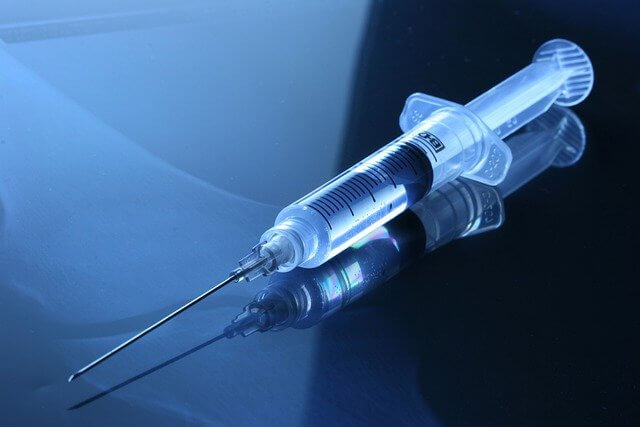In this article, Dr Hrishikesh Pai, one of the leading IVF Doctors in India talks about “ What is intrauterine insemination (IUI) and what is the treatment for it?”
Dr Hrishikesh Pai has vast experience of 35+ years with thousands of cases performed in the fields of Obstetrics, Gynecology & Infertility. He has been practising as an IVF specialist, Gynecologist, and Obstetrician since 1991.
Intrauterine insemination (IUI), is a kind of artificial insemination and a method used to treat infertility in women.
It is around the time that your ovary produces one or more eggs to be fertilised that sperm is cleaned and purified and injected directly into your uterus for fertilisation.
During intrauterine insemination, the goal is for the sperm to swim into the fallopian tube and fertilise an egg that has been waiting for fertilisation, resulting in a pregnancy.
IUI can be performed in conjunction with your natural cycle or in conjunction with fertility medicines, depending on the cause of infertility.
Who should take the IUI treatment?
India leading IVF Specialist Dr Hrishikesh Pai opines that Getting pregnant might be difficult for some couples because of a variety of issues. Intrauterine insemination is most commonly done in couples that have the following characteristics:
Sperm from a donor
The most frequent method of achieving conception for women who need to use donor sperm is intrauterine insemination (IUI). During the IUI technique, frozen donor sperm specimens are received from approved laboratories and thawed before use.
Infertility that cannot be explained
IUI is frequently used as a first-line treatment for unexplained infertility, in conjunction with ovulation-inducing medicines, to achieve pregnancy.
Infertility due to endometriosis
When it comes to endometriosis-related infertility, taking medicines to obtain a high-quality egg in conjunction with IUI is frequently the first line of treatment.
Infertility caused by the ovulatory factor
IUI can also be used to treat infertility in women who are experiencing problems with ovulation, such as an absence of ovulation or a reduced quantity of eggs.
How to prepare for the treatment?

According to Dr Hrishikesh Pai a premium IVF Doctor in India says that Intrauterine insemination demands meticulous coordination before the actual procedure:
Preparing the semen sample
Your spouse supplies a semen sample in the doctor’s office, or a vial of frozen donor sperm can be thawed and processed.
Because non-sperm materials in semen can induce reactions in the woman’s body that interfere with fertilization, the sample will be cleaned in a method that separates the highly active, normal sperm from lesser quality sperm and other elements.
The likelihood of attaining pregnancy increases by using a small, highly concentrated sample of healthy sperm.
Keeping an eye out for ovulation
Because the timing of IUI is so vital, it is critical to keep an eye out for indicators of impending ovulation.
A urine ovulation prediction test, which may be used at home, can determine when your body releases a surge or release of luteinizing hormone, which is responsible for fertilisation (LH).
Alternatively, a transvaginal ultrasound (a type of imaging technology that allows your doctor to see your ovaries and egg growth) can be performed.
A human chorionic gonadotropin (HCG) injection or drugs to induce ovulation of one or more eggs at the appropriate time may also be administered to you during this procedure.
Choosing the most appropriate time
The majority of IUIs are performed within a day or two of identifying ovulation. You will be given specific instructions by your doctor or another care provider regarding the time of your surgery and what to expect.
What to Expect When You Visit
Intrauterine insemination (IUI) is performed at a doctor’s office or clinic, and the procedure takes about 15 to 20 minutes.
The IUI technique itself takes only a few minutes and does not necessitate the use of any drugs or pain relievers. The procedure is carried either by your doctor or by a highly trained nurse.
During the treatment
You insert your legs into stirrups while lying down on an examination table. During the procedure, your healthcare professional inserts a speculum into your vagina, which is similar to what you would experience during a Pap test.
During the procedure, the doctor or nurse will accomplish the following:
- Connects the end of a long, thin, flexible tube to the end of a vial that contains a sample of healthy sperm (catheter)
- This procedure involves inserting a catheter into the vagina, through the cervical opening, and into the uterine cavity.
- This procedure involves pushing the sperm sample via the tube and into the uterus.
- Removes the catheter, next to the speculum, and finally the speculum.
Following the treatment
After insemination, you should lie down on your back for a short length of time. After the operation is completed, you will be able to get dressed and resume your normal daily activities. It is possible that you will have some minor spotting for a day or two following the surgery.
Results
Wait at least two weeks before taking a home pregnancy test to rule out pregnancy. Testing too soon could bring in a result that is as follows:
False-negative
It is possible that the test will come out negative even though you are actually pregnant if your pregnancy hormones have not yet reached detectable levels.
False-positive
If you’re taking an ovulation-inducing medicine, such as HCG, the medication that’s still circulating in your bloodstream may give the impression that you’re pregnant when you’re not actually expecting it.
A blood test, which is more sensitive in identifying pregnancy hormones after fertilisation than a home kit, may be recommended by your doctor about two weeks after the results of your home kit are returned.
If you don’t become pregnant with IUI the first time, you might want to try it again before moving on to other fertility treatments.
Often, the same treatment is repeated for three to six months in order to increase the odds of becoming pregnant notes Dr Hrishikesh Pai a top IVF specialist in India.
KEY HIGHLIGHTS









